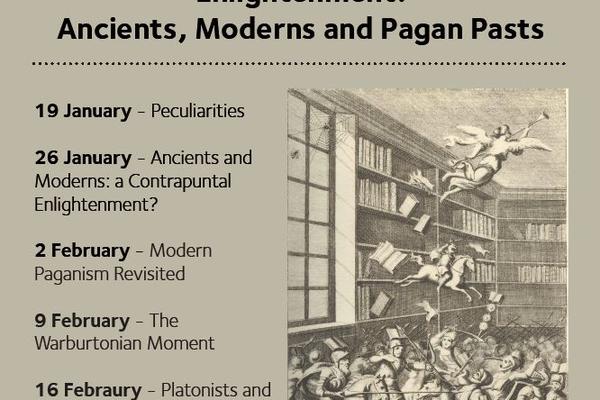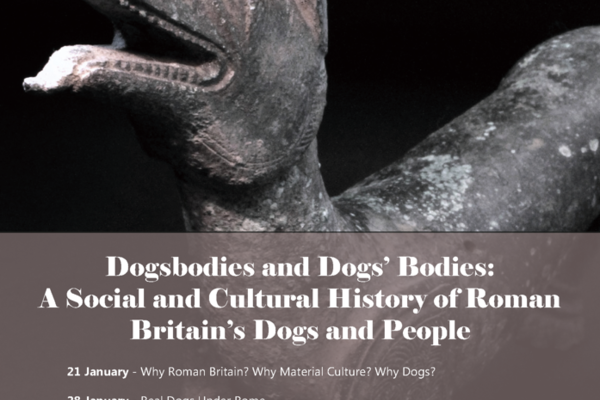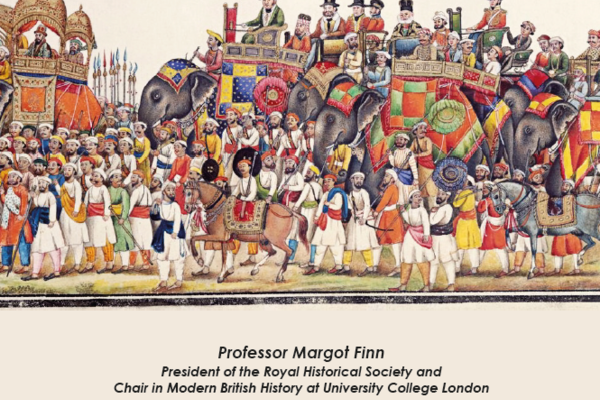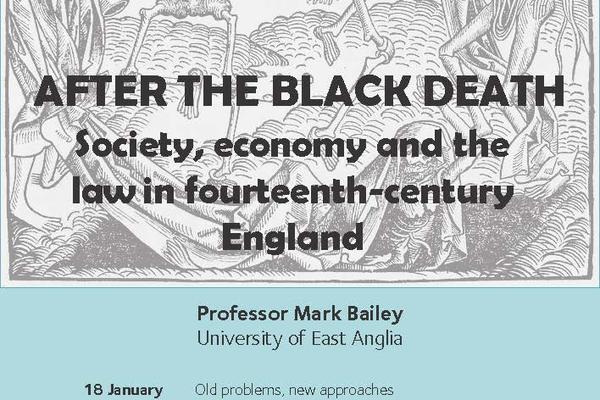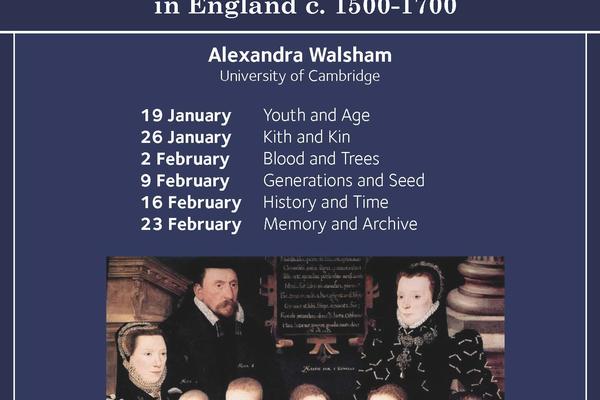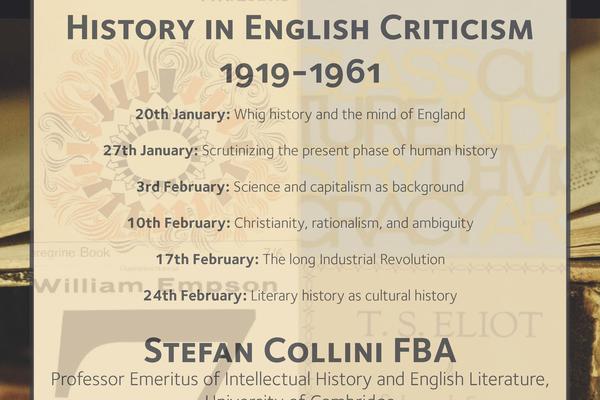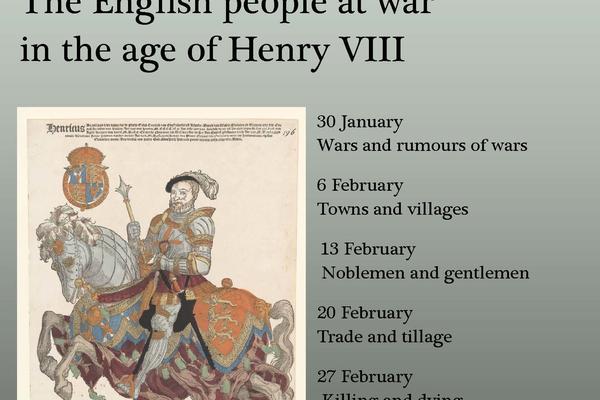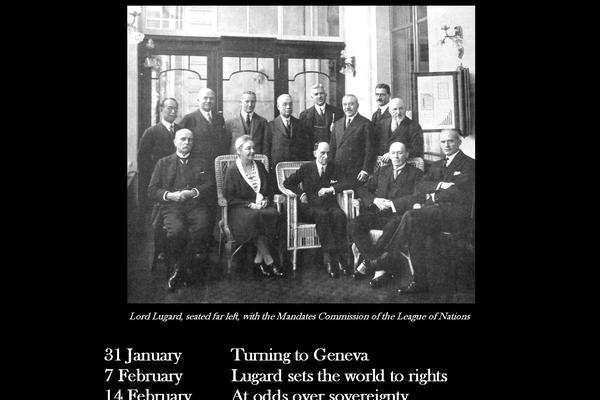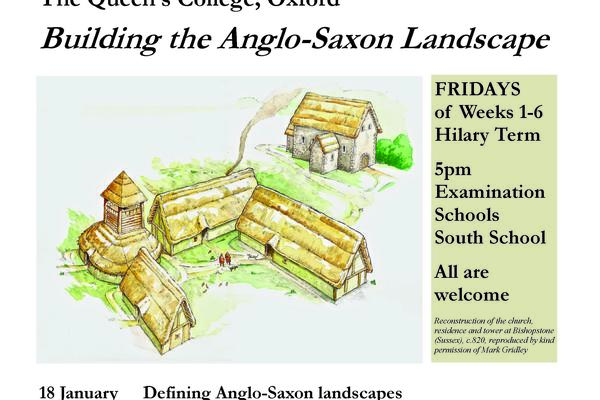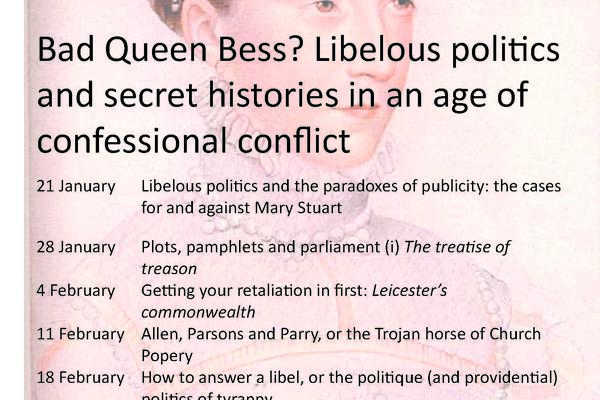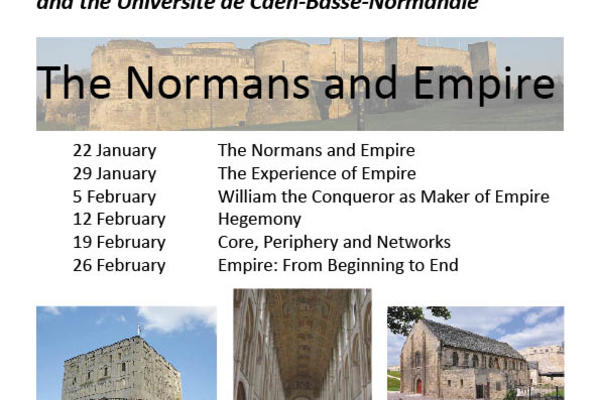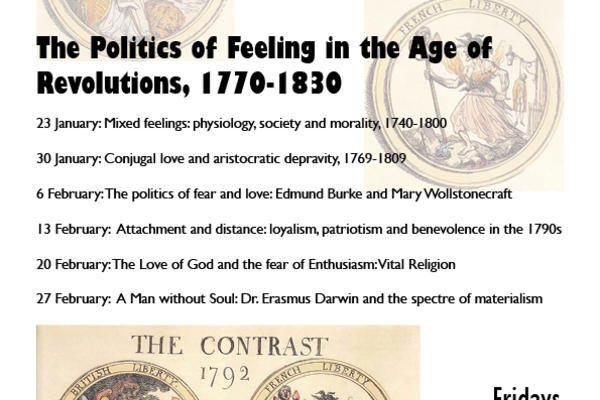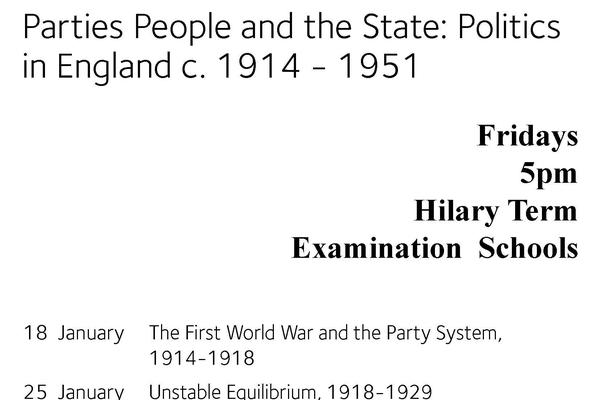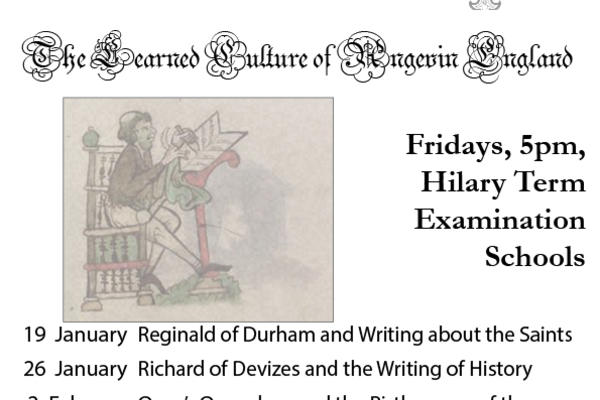The James Ford Lectures in British History
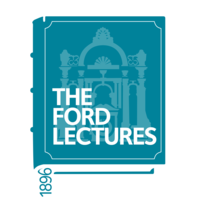
The Ford Lectures in British History were founded by a bequest from James Ford, and inaugurated by S.R.Gardiner in 1896-7. Since then, an annual series has been delivered over six weeks in Hilary term. They have long been established as the most prestigious series in Oxford and an important annual event in the History Faculty calendar.
Though sometimes elected from among the Oxford History Faculty, the Ford Lecturer is often a distinguished visitor from elsewhere in the United Kingdom, or further afield. Towards the end of the series, the Lecturer generally convenes a seminar for faculty members and students, where the themes and ideas of the series are discussed.
The lectures alternate between medieval, early modern and modern history. They bring the opportunity for distinguished scholars to present their work to an Oxford audience, in a scholarly but accessible way. The attendance, which is often very large, habitually includes people from the local community as well as many from outside Oxford.
The Lectures invariably result in important books, many of them classic and pioneering works of British history.
The James Ford Lectures 2026
The Language of Social Science in Everyday Life
Professor Peter Mandler (Gonville and Caius College, Cambridge)
These lectures chart the spread and use of the language of social science into everyday life in twentieth-century Britain. As a religious language for orienting the self and its relations to others went into decline, and as modern life became more mobile and complex, new tools were taken up to meet the challenges of everyday life: to anatomize and characterize the self, to chart its progress across the life-course, to make palpable modernity's many ‘invisible structures’ and ‘imagined communities’, to compare personal experiences to the experiences of others, and to address private problems with new concepts, new devices, new therapies. Psychology, Sociology, Economics and Politics will feature prominently, alongside consideration of Anthropology, Social Medicine, Literature, History and Philosophy.
Thursdays at 5pm, Weeks 1-6 Hilary Term, Examination Schools
All welcome, no need to book!

Past Lectures:
Past Lecture Posters (2007-present)
2022: Dogsbodies and Dogs’ Bodies: A Social and Cultural History of Roman Britain’s Dogs and People
2020: Family and Empire: Kinship and British Colonialism in the East India Company Era, c. 1750-1850
2019: After the Black Death: Society, economy and the law in fourteenth-century England
2018: The Reformation of the Generations: Age, Ancestry, and Memory in England c.1500-1700
2017: History in English Criticism, 1919-1961
2016: The Problem of the Fourteenth Century: Politics, State and Society in England 1307-1399
2015: The English people at war in the age of Henry VIII
2014: Internationalism and Empire: British Dilemmas, 1919-1939
2013: Building Anglo-Saxon Landscapes
2012: Making a Revolution in Ireland, c. 1890-1916
2011: Bad Queen Bess? Libellous politics and secret histories in an age of confessional conflict
2010: The Normans and Empire
2009: The Politics of Feeling in the Age of Revolutions, 1770 – 1830
2008: Parties, People and the State: Politics in England c.1914 - 1951
2007: The Learned Culture of Angevin England
| Academic Year | Speaker | Title of Lecture Series |
|---|---|---|
| 2022-23 | Professor Colin Kidd |
Peculiarities of the English Enlightenment: Ancients, Moderns and Pagan Pasts |
| 2021-22 | Professor Robin Fleming |
Dogsbodies and Dogs’ Bodies: A Social and Cultural History of Roman Britain’s Dogs and People |
| 2020-21 | Professor Jane Ohlmeyer | Ireland, empire and the early modern world |
| 2019-20 | Professor Margot Finn | Family and Empire: Kinship and British Colonialism in the East India Company Era, c. 1750-1580 |
| 2018-19 | Professor Mark Bailey | The Black Death: Society, economy and the law in fourteenth-century England |
| 2017-18 | Professor Alexandra Walsham | The Reformation of the Generations: Age, Ancestry, and Memory in England c.1500-1700 |
| 2016-17 | Professor Stefan Collini | History in English Criticism, 1919-1961 |
| 2015-16 | Dr Christine Carpenter | The Problem of the Fourteenth Century: politics, state and society in England 1307-1399 |
| 2014-15 | Dr Steven Gunn | The English people at war in the age of Henry VIII |
| 2013-14 | Professor Susan Pedersen | Internationalism and Empire: British Dilemmas, 1919-1939 |
| 2012-13 | Professor John Blair | Building the Anglo-Saxon Landscape |
| 2011-12 | Professor Roy Foster | Making a Revolution in Ireland c.1890-1916 |
| 2010-11 | Professor P. Lake | Bad Queen Bess? Libellous politics and secret histories in an age of confessional conflict |
| 2009-10 | Professor D. Bates | The Normans and Empire |
| 2008-9 | Professor J. Brewer | The Politics of Feeling in the Age of Revolutions, 1770 – 1830 |
| 2007-8 | Dr R. McKibbin | Parties, People and the State: Politics in England c.1914 - 1951 |
| 2006-7 | Professor R. Bartlett | The Learned Culture of Angevin England |
| 2005-6 | Professor J. Morrill | Living with Revolution: the peoples of Britain and Ireland and the Civil Wars |
| 2004-5 | Professor M. Elliott | Religion and Identity in Modern Irish History |
| 2003-4 | Dr J.R. Maddicott | The Origins of the English Parliament c900-1327 |
| 2002-3 | Professor Q.R.D. Skinner | Freedom, Representation and Revolution, 1603-1651 |
| 2001-2 | Professor P.F. Clarke | Britain’s image in the world in the twentieth century |
| 2000-1 | Professor C. Dyer | An age of transition? Economy and society in the later middle ages |
| 1999-00 | Sir Keith Thomas | The ends of life: roads to human fulfilment in early modern England |
| 1998-9 | Professor T.C. Smout | Use and delight: Environmental History in Northern Britain since 1600 |
| 1997-8 | Professor R.R. Davies | Beyond the English State: Power, Societies and Identities in the British Isles. |
| 1996-7 | Professor J.F. Harris | A land of lost content? Visions of civic virtue from Ruskin to Rawls. |
| 1995-6 | Mr J. Campbell | Origins of the English State. |
| 1994-5 | Dr P.A. Slack | From Reformation to Improvement: social reform and public welfare in England 1500-1740. |
| 1993-4 | Professor F.M.L. Thompson | British Society, 1780-1980: Enterprise Culture and the Gentrification Syndrome. |
| 1992-3 | Professor P.H. Sawyer | Wealth in Anglo-Saxon England. |
| 1991-2 | Professor David Underdown | The Political Nation of 17th century England. |
| 1990-1 | The Rt. Hon. Lord Briggs | Culture and Communication in Victorian England. |
| 1989-90 | Dr Paul Langford | Public life and the propertied Englishman 1689-1798. |
| 1988-9 | Miss B.F. Harvey | Living and dying in England 1200-1540: the monastic experience. |
| 1987-8 | Professor C.S.R. Russell | The Causes of the English Civil War. |
| 1986-7 | Professor K. Robbins | The Blending of Britain 1880-1914. |
| 1985-6 | Professor S.F.C. Milson | Law and Society in the 12th and 13th centuries. |
| 1984-5 | Sir John Habakkuk | The English Landed Estate 1650-1882. |
| 1983-4 | Professor I.R. Christie | Stress and Stability in late 18th Century Britain. |
| 1982-3 | Mr J.O. Prestwich | The Place of War in English History 1066-1214. |
| 1981-2 | Professor J. Scarisbrick | Religious Attitudes in Reformation England. |
| 1980-1 | Professor W.O. Chadwick | Britain, the Pope and Appeasement 1935-1940. |
| 1979-80 | Professor D.A. Bullough | Alcuin: The Achievement and the Reputation. |
| 1978-9 | Professor P. Collinson | The Religion of Protestants: The Church in English Society, 1559-1625. |
| 1977-8 | Professor F.S.L. Lyons | Culture and Anarchy in modern Ireland, 1890-1939. |
| 1976-7 | Professor G.W.S. Barrow | The Anglo-Norman Era in Scottish History. |
| 1975-6 | Professor J.P. Kenyon | The Politics of Oligarchy 1689-1720. |
| 1974-5 | Dr I.J. Thirsk | Economic Policy, Economic Projects and Political Economy, 1540-1700. |
| 1973-4 | Professor J.A. Gallagher | The Fall of British Imperialism: domestic constraints and external dangers 1916-47. |
| 1972-3 | Professor R.H. Hilton | Peasantry in late medieval England. |
| 1971-2 | Professor G.R. Elton | Policy and Police: the enforcement of the Reformation in the age of Thomas Cromwell. |
| 1970-1 | M.E. Howard | The Gouty Giant: Reflection on British Defence Policy in the era of two World Wars. |
| 1969-70 | Dr J.M. Wallace-Hadrill | Early Germanic Kingship in England and on the Continent. |
| 1968-9 | Professor C.H. Wilson | Queen Elizabeth and the Revolt of the Netherlands. |
| 1967-8 | R.N.W. Blake | The Conservative Party from Peel to Churchill. |
| 1966-7 | Miss Beryl Smalley | Intellectuals and Politics in the twelfth century. |
| 1965-6 | Dr J.H. Plumb | The growth of political stability in England 1675-1725. |
| 1964-5 | Professor E.M. Carus Wilson | The rise of the English woollen industry. |
| 1963-4 | Professor Norman Gash | Reaction and reconstruction in English politics 1832-52. |
| 1962-3 | Professor D.C. Douglas | William the Conqueror: the Norman impact upon England. |
| 1961-2 | J.E.C. Hill | Intellectual origins of the English Revolution. |
| 1960-1 | Professor J.G. Edwards | English Parliament in its second century. |


